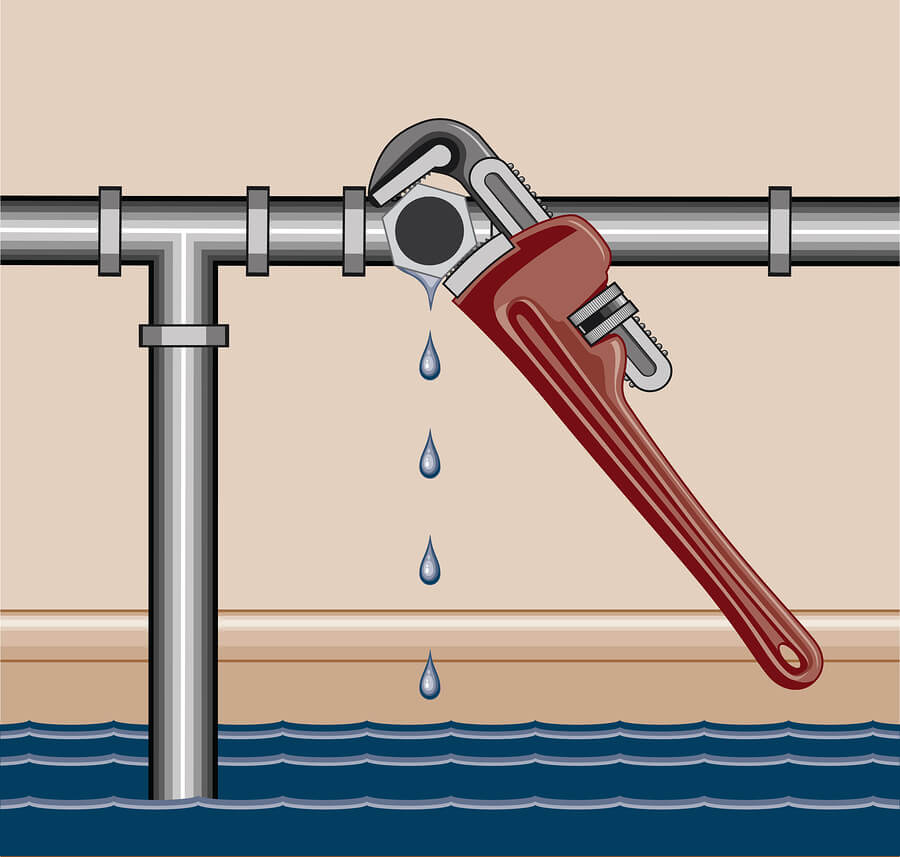We've stumbled upon the article on How to Find Water Leaks listed below on the web and believe it made good sense to relate it with you on this page.
Leakages not only cause waste of water but can additionally create unnecessary damages to your house and advertise undesirable natural development. By looking as well as recognizing for daily circumstances that trigger leakages, you can shield your home from future leakages as well as unnecessary damage.
Instant temperature level changes.
Extreme temperature level modifications in our pipes can trigger them to increase and also contract all of a sudden. This growth and contraction may cause cracks in the pipelines, especially if the temperature level are below freezing. If you kept an eye on how your plumbing works, it would certainly be best. The presence of the previously mentioned circumstances frequently suggests a high threat.
Rusty water systems
As time passes by, your plumbing system ages and also corrosion such as rust may begin eating away the pipelines. This might be the cause of discoloration or warping on your water pipes. This asks for an examination with your plumber right away. Consider changing the pipelines since they are at a higher danger of deterioration than the more recent models if our plumbing system is old.
Defective Pipe Joints
Pipe joints can deteriorate over time, resulting in water leaks. If you have noisy pipes that make ticking or banging sounds, especially when the hot water is transformed on, your pipeline joints are probably under a great deal of pressure.
Trespassing roots
Many water leakages start outside the residence instead than inside it. You might notice damp patches or sinkholes in your yard, and that could indicate that tree roots are invading water lines creating water to permeate out.
Poor Water Connectors
Sometimes, a leak can be triggered by loose tubes and also pipes that provide your appliances. Typically, moving is what creates the loosened water Connections. You might find when it comes to a cleaning machine, a hose may spring a leakage because of drinking throughout the spin cycle. In case of a water links leak, you might observe water running straight from the supply line or pools around your home appliances.
Blocked Drains
Clogged drains pipes could be aggravating as well as inconveniencing, yet they can often wind up triggering an overflow leading to rupture pipelines. Keep getting rid of any materials that may drop your drains that might obstruct them to prevent such inconveniences.
All the above are sources of leakages however not all water leaks result from plumbing leaks; some leakages might come from roof leakages. All leaks ought to be fixed right away to avoid water damages.
Leakages not just create waste of water but can also cause unnecessary damages to your home and promote undesirable natural development. By looking and also recognizing for daily scenarios that create leakages, you can protect your residence from future leakages and also unneeded damage. Today, we will look at six leakage causes that may be causing your pipes to leak.
At times, a leak can be triggered by loosened pipes and pipes that provide your appliances. In case of a water connections leak, you might notice water running directly from the supply line or puddles around your appliances.
How To Check For Water Leak In Your Home
How To Check for Leaks
The average household's leaks can account for nearly 10,000 gallons of water wasted every year and ten percent of homes have leaks that waste 90 gallons or more per day. Common types of leaks found in the home are worn toilet flappers, dripping faucets, and other leaking valves. These types of leaks are often easy to fix, requiring only a few tools and hardware that can pay for themselves in water savings. Fixing easily corrected household water leaks can save homeowners about 10 percent on their water bills.
To check for leaks in your home, you first need to determine whether you're wasting water and then identify the source of the leak. Here are some tips for finding leaks:
Take a look at your water usage during a colder month, such as January or February. If a family of four exceeds 12,000 gallons per month, there are serious leaks.
Check your water meter before and after a two-hour period when no water is being used. If the meter changes at all, you probably have a leak.
Identify toilet leaks by placing a drop of food coloring in the toilet tank. If any color shows up in the bowl after 10 minutes, you have a leak. (Be sure to flush immediately after the experiment to avoid staining the tank.)
Examine faucet gaskets and pipe fittings for any water on the outside of the pipe to check for surface leaks.
Undetected water leaks can happen without the home or business owner even realizing. If you suspect a water leak, but not able to find the source. It is time to contact a professional water leak detection service, The Leak Doctor.
How To Find a Water Leak In Your Home
https://www.leakdoctor.com/blog/How-To-Check-For-Water-Leak-In-Your-Home_AE197.html

As a devoted person who reads on Most Common Causes of Leaky Pipes, I imagined sharing that blog post was important. Remember to take the opportunity to share this blog entry if you liked it. I love reading our article about How Fast Water Damage Can Ruin Your Home.
Request A Quote